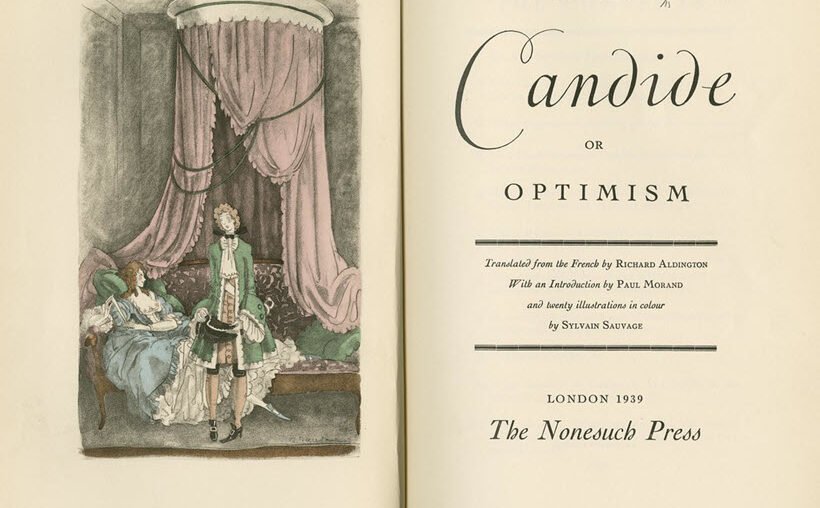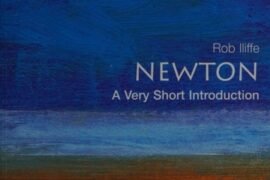2020학년도 한양대 인문계 A형
22<글의 요지>
다음 글의 요지로 가장 적절한 것을 고르시오.
Published in 1759, Candide is considered Voltaire’s signature work, and it is here that he levels his sharpest criticism against nobility, philosophy, the church, and cruelty. Though often considered a representative text of the Enlightenment, the novel actually savagely satires a number of Enlightenment philosophies. Many historians mark the French Revolution as the crowning event of the Enlightenment era. The primary feature of Enlightenment philosophy is a profound faith in the power of reason and rational thought to lead human beings to a better social structure. The political ideology of Enlightenment philosophers is characterized by a spirit of social reform. The champions of the Enlightenment called for rebellion against superstition, fear, and prejudice. They attacked the aristocracy and the church. Candide reflects Voltaire’s lifelong aversion to Christian regimes of power and the arrogance of nobility, but it also criticizes certain aspects of the philosophical movement of the Enlightenment. It attacks the school of optimism that contends that rational thought can curtail the evils perpetrated by human beings.
① Voltaire’s Candide ushered in the optimistic era of the Enlightenment.
② Voltaire’s Candide is an extended reflection on the failure of the French Revolution.
③ The French Revolution was strongly opposed to the Enlightenment’s faith in the power of reason.
④ An unflinching advocate of the Enlightenment, Voltaire was heavily critical of the French Revolution for its vindictive excesses.
⑤ Voltaire was wary of both the tyranny of the ruling class and the Enlightenment era’s less than critical acceptance of the supremacy of human reason.
정답 및 해설
정답 ⑤
[해설]
요지는 주제문을 정리하는 형식의 글이므로 일반적으로 문미에 단서가 나온다. 기독교 권력 체제에 대한 볼테르의 혐오와 귀족의 오만함을 선택지에 지배계급의 횡포(the tyranny of the ruling class)로 재표현했고, 계몽주의 철학 운동의 특정한 측면의 비판은 계몽주의 시대낙관주의 학파의 합리적 사고를 비판한 것이므로 ⑤번이 적절하다.
[선지해석]
① 볼테르의 캉디드는 계몽주의의 낙관적인 시대를 열었다.
② 볼테르의 캉디드는 프랑스 혁명의 실패에 대한 널리 퍼진 성찰이다.
③ 프랑스 혁명은 이성의 힘에 대한 계몽주의의 믿음에 강하게 반대했다.
④ 계몽주의의 확고한 옹호자인 볼테르는 프랑스 혁명의 보복 과잉에 대해 매우 비판적이었다.
⑤ 볼테르는 지배계급의 횡포와 계몽주의 시대가 인간 이성의 우월성을 비판적으로 받아들이지 않는 것 모두를 경계했다.
해석 및 어휘
[해석]
1759년에 출판된 캉디드(Candide)는 볼테르의 대표적인 작품으로 여겨지며, 이 작품에서 그는 귀족 계급, 철학, 교회, 잔인함에 대해 가장 날카로운 비판을 가했다. 흔히 계몽주의를 대표하는 글로 여겨지지만 실제로 이 소설은 여러 계몽주의 철학을 신랄하게 풍자하고 있다. 많은 역사가들은 프랑스 혁명을 계몽주의 시대의 가장 중요한 사건으로 규정한다. 계몽주의 철학의 주요 특징은 인간을 더 나은 사회 구조로 이끄는 이성과 합리적 사고의 힘에 대한 깊은 믿음이다. 계몽주의의 옹호자들은 미신, 공포, 편견에 대한 저항을 요구했다. 그들은 귀족과 교회를 공격했다. 캉디드는 기독교 권력 체제에 대한 볼테르가 평생 동안의 혐오와 귀족의 오만함을 반영하지만 계몽주의 철학 운동의 특정 측면을 비판하기도 한다. 그것은 합리적 사고가 인간이 자행하는 악을 줄일 수 있다고 주장하는 낙관주의 학파를 공격한다.
[어휘]
signature 대표적인
level (비난·공격 따위를) 퍼붓다
nobility 귀족 계급
Enlightenment 계몽주의
savagely 맹렬하게
satire 풍자하다
crowning 최고의
profound 깊은, 심오한
call for ~을 요구하다
rebellion 반란, 저항
superstition 미신
prejudice 편견
aristocracy 귀족
aversion 혐오
regime 정권, 체제
curtail 축소시키다
perpetrate 저지르다, 자행하다
school 파, 유파
tyranny 폭정, 횡포







